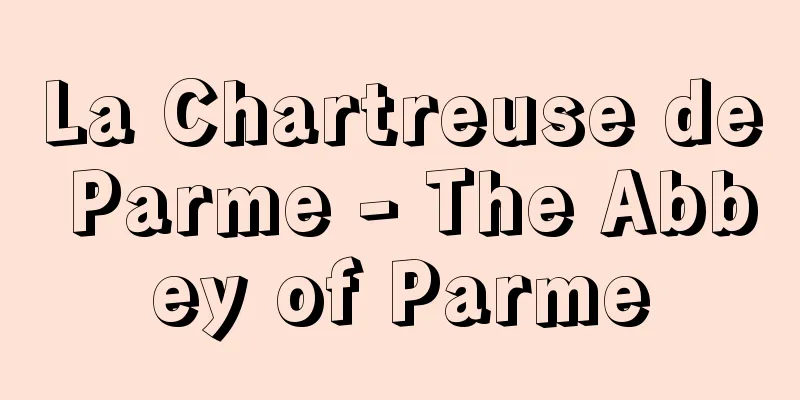Club - Club (English spelling)

|
A form of association. In a broad sense, it is a part-time, non-profit functional group run by members who voluntarily join under certain promises, with basically equal status, in order to fulfill some common purpose or interest. The word club itself comes from the English word cleave (to adhere, to unite). The German word equivalent to club is Zeche, which means a trade association, guild, or banquet, and originally meant eating and drinking together. In Japan, the character "kurabu" is used. [Tsuneo Ayabe] The Anthropological View of the ClubAlthough the word club is of British origin, functional groups of this kind are ancient in human history, and their existence is well known even in so-called primitive societies. Clubs in primitive societies vary in structure, function, rituals, and purpose depending on the region and tribe, and many of them take the form of secret societies. In general, in tribal societies, membership in a club signifies high social status, and the Royal Society of the Benin people of Nigeria and the Ozo Society, an association of "titled chiefs" among the Igbo people, are typical clubs for the elite only. The Khalif Society of the Elea people of New Guinea and the Ogboni Society of the Yoruba people of Nigeria can be said to be clubs with political functions. The Mende people who live from Sierra Leone to Liberia have women's clubs, and the Polo Society found among the Kpel people of Liberia is a club with the purpose of educating boys. The Mau Mau group of the Kikuyu people of Kenya, who fought against British colonial policy, was a revolutionary secret club. In Micronesia and parts of Africa, there are many clubs for communal dining, drama, and recreation. [Tsuneo Ayabe] Clubs in Europe and the USIn ancient Greece and Rome, a club was a part of religious organizations, and meant a place where people could discuss politics, business, and so on while eating together. In England, clubs for religious activities were established around the 16th century, and their purposes later became more diverse, but most were social clubs for the upper class, and were social organizations established by class and occupation. In the early 17th century, coffee was imported from Turkey, and club meetings began to be held in coffee houses and turbans (inns). It was from the late 17th century to the early 18th century that hobby, literature, and art groups, separate from occupational groups, were established, and sports clubs such as yachting, boating, and cricket also began to be formed around this time. The Alpine Club, which aimed to engage in mountain climbing, was established relatively late, in 1857. Women's issues and hobby clubs, mainly consisting of women, were established at the end of the 18th century. Rural clubs were established in each region, and served as the center of the local community and a place of relaxation for the people. The development of such clubs in the UK was the birth of a democracy that valued autonomy. The UK's Jockey Club is an example of a club that has taken the element of autonomy to the extreme, and has quasi-judicial powers within the bounds of the law regarding horse racing. In the 20th century in the United States, country clubs developed in the suburbs to enjoy sports, mainly golf. Such clubs are run by contributions and donations from members, and do not engage in commercial activities. Officers are also elected from among the members. Club life is centered around the clubhouse, which often has all the facilities necessary for meetings, as well as food, drink, entertainment, and accommodation. Even in the so-called prestigious universities in the UK and the US, student clubs have existed for a long time, and the structure reflecting social hierarchies has not yet been broken. Woodrow Wilson, who became president of Princeton University in 1902, made closed student clubs the main target of university reform, but it is well known that he failed due to fierce opposition from the board of directors and others. German student unions (Burschenschafts) have also varied in character depending on the era, but they can also be called student clubs. In China, since the Ming Dynasty, many groups, including those from the same hometown or profession, have had meeting halls as their bases of operations. There are various types of meeting halls, but they all share the common goal of promoting the convenience and mutual assistance of their members. [Tokuhisa Kyuuou] Japanese ClubIn Japan, the formation of clubs through the voluntary actions of individuals has a short history, with some upper-class social gatherings imitating those of the West beginning in the early Meiji period, which gradually developed into hobby and sports groups. However, there has been little development into groups for the free expression of individual opinions or service, which is the original basis of democracy, and instead they have taken on the role of sports or hobby clubs, and in many cases are used only as places to eat and drink, or as social gatherings, so it can be said that a different type of club has developed in Japan than in the West. [Tokuhisa Kyuuou] “Club” by Akio Kobayashi (1985, Jundando)” Source: Shogakukan Encyclopedia Nipponica About Encyclopedia Nipponica Information | Legend |
|
結社の一形態。広義には、なんらかの共通の目的・関心を満たすために、一定の約束のもとに、基本的には平等な資格で、自発的に加入した成員によって運営される、生計を目的としない、パートタイムの機能集団のことである。クラブということば自体はクリーブcleave(執着する、団結する)という英語に由来する。ドイツ語のクラブに相当する語は同業組合、ギルド、宴会などを意味するツェッヘZecheであり、本来の意味は共飲共食のことであった。日本では「倶楽部」の字をあてた。 [綾部恒雄] 人類学からみたクラブクラブということばはイギリス起源であるが、同種の機能集団は人類史上古く、いわゆる未開社会においても、その存在がよく知られている。未開社会のクラブは、地域や種族によって、構造や機能、儀礼や目的が多様であり、秘密結社の形をとっているものも多い。一般に部族社会では、クラブの成員であることは高い社会的地位を意味しており、ナイジェリアのベニン人の王宮結社や、イボ人の「肩書のある首長」の会であるオゾ結社などは典型的なエリートのみのクラブである。ニューギニアのエレア人のハリフ結社やナイジェリアのヨルバ人のオグボニ結社は、政治的機能をもつクラブといえる。シエラレオネからリベリアにかけて住むメンデ人には女性によるクラブがあり、リベリアのクペル人にみられるポロ結社などは、少年を教育する目的をもったクラブである。イギリスの植民地政策に反対して闘ったケニアのキクユ人のマウマウ団は、革命的秘密クラブであった。ミクロネシアやアフリカの一部には、共食や演劇やレクリエーションを目的としたクラブも多い。 [綾部恒雄] 欧米などにおけるクラブクラブは古代ギリシア・ローマ時代には宗教的な組織の一部で、ともに食事をしながら政治や商業のことなどを話し合う場所の意味であった。イギリスでは16世紀ごろから宗教的な活動をするクラブがつくられ、のちに目的が多岐になっていったが、多くは上流社会の社交クラブで、階層別・職業別につくられた親睦(しんぼく)団体であった。17世紀初頭にコーヒーがトルコから輪入され、コーヒーハウスやターバン(宿屋)でクラブの集会が行われるようになった。職業的なものとは別の、趣味や文学・芸術などの愛好団体が生まれてくるのは17世紀後半から18世紀前半で、ヨット、ボート、クリケットなどをはじめスポーツのクラブもほぼこの時代に形成され始めた。登山を目的とするアルパイン・クラブの成立は比較的遅く、1857年のことである。婦人をおもなメンバーとする婦人問題や趣味のクラブが形成されたのは18世紀末であった。地域にはそれぞれルーラル・クラブがつくられ、地域の人々のコミュニティの中心として憩いの場となっていた。イギリスにおけるこのようなクラブの発達は、自治を重んじる民主主義形成の母胎であった。クラブの自治の要素が極度に発達したものとしてイギリスのジョッキー・クラブがあげられ、競馬に関して法律の範囲内での準司法的権能をもつに至っている。 アメリカでは20世紀に入って郊外でスポーツを楽しむためのカントリー・クラブがゴルフを中心に発達した。このようなクラブの運営は会員の醵出(きょしゅつ)金や寄付金によって行われ、営業行為は行わない。役員も会員のなかから選出される。クラブライフはクラブハウスを中心に行われ、クラブハウスは集会に必要な各施設、飲食、娯楽、宿泊施設も設けられているものが多い。イギリスやアメリカのいわゆる名門大学においても学生のクラブが古くからあるが、依然として社会の階層を反映した構成が崩れたとはいえない。1902年プリンストン大学学長となったウッドロー・ウィルソンは閉鎖的な学生クラブを大学改革のおもな対象としたが、理事などの猛反対で失敗したことは有名である。ドイツの学生組合(ブルシェンシャフト)も時代により多様な性格をもつが、学生のクラブといってもよい。 中国では明(みん)代以降、同郷・同業をはじめ多くのグループが活動の本拠として会館をもっている。会館にはさまざまな形態があるが、仲間相互の便宜や互助を図ることは共通している。 [徳久球雄] 日本のクラブ日本においてはこのような個人の自主的行動によるクラブの形成は歴史が浅く、明治初期に欧米の模倣をして一部上流階級の社交場が存在し、だんだん趣味やスポーツの団体として発達した。しかし本来の民主主義の母胎としての個人の自由な意見の表現や奉仕の団体としての発達は少なく、主としてスポーツや趣味の同好会としての意義に定着し、また飲食の場としてのみの場所や社交場の意味に用いられている場合が多く、欧米とは異なった形のクラブが発達しているといえよう。 [徳久球雄] 『小林章夫著『クラブ』(1985・駸々堂)』 出典 小学館 日本大百科全書(ニッポニカ)日本大百科全書(ニッポニカ)について 情報 | 凡例 |
Recommend
Milev, Geo
Born: January 15, 1895 in Radnevo [Died] May 15, 1...
Kigo - Kigo
Nuts. See the entry for the character "tree&q...
Genus Atractylodes - Atractylodes genus
...The dried whole plant of P. rotundifolia L. fr...
Ministry of Railways
The government agency responsible for railways wa...
Fire - rudder
It is called a fire because it is something that i...
Cristeros
"What Sinarkism wants is a homeland for the ...
"Flower of the Sea" - Kaijo Karetsuden
… The unique characters used to write the Suzhou ...
IUIS - IuIs
…International Astronomical Union (abbreviated as...
Goho
A neighborhood organization within a village under...
Iron (ethnic group) - Iron
...an ethnic group living in the central Caucasus...
Schrebergärten (English spelling)
...For example, the Russian dacha is a small vill...
Lapvesi
…Located on the shores of Lake Saimaa and at the ...
Water-soluble natural gas
Natural gas is a type of gas that is combustible, ...
Paleosuchus palpebrosus (English spelling) Paleosuchuspalpebrosus
...The broad-lipped caiman C. latirostris (total ...
Nicolas Flamel
Around 1330 - 1418 A French alchemist born in Pont...









